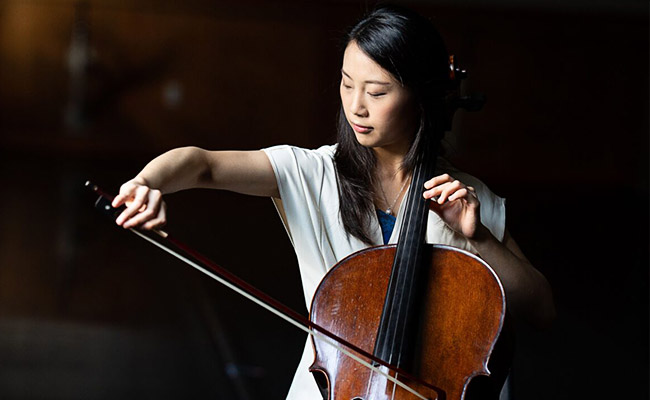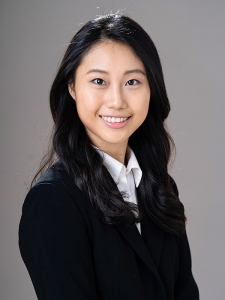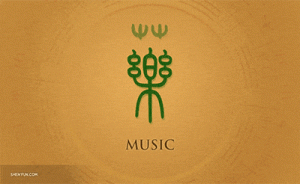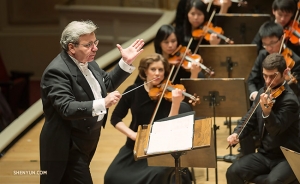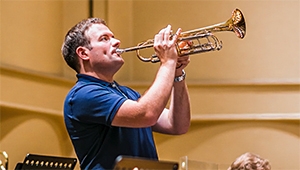
When Yuchien Yuan speaks of music and the cello, the virtuoso is filled with calm and gratitude. Music is what has been with her all her life.
“I love the sound of it—the vibrant lower registers, the range. It’s so beautiful that my orchestra colleagues often say, jokingly, of course, ‘Oh, I wish I had learned the cello instead,’” Yuan said.
In our modern world so jampacked with noise, the sound of the cello still makes you stop and listen, Yuan mused. “When I play, I really get into it. Actually, there have been times when I was depressed—but then I play, and I feel like even if I have nothing in my life, if I have the cello, I’m OK.”
Yuan sees not only her musical talent but also the presence of music in her life itself, as a great gift God has given to her. “When I’m playing music, I get the chance to take off my mask, the mask I’m wearing in this human society, and to show who I am, my true self. In cello performance, I can show people the truth, kindness, and generosity. Music is not just a job or a craft, but a gift I’d like to share with the whole world.”
She added: “Through music, I have the chance to meet and communicate with audiences of different backgrounds from around the world and share my feelings and insights of arts and culture with them, as well as bring some beauty into the world.”
To date, the consummate artist has played in many performances at the world’s top venues for years with New York-based Shen Yun Performing Arts, as part of the orchestra that tours with the dance companies. She has been around the world and performed on the greatest stages.
“The energy of every performance is tremendous. Everyone is surrounded in a field of pure energy, and there are no messy, stray thoughts. The busyness and chaos of daily life completely disappears. It fades away, and there is nothing but the music,” Yuan said. “I feel like, actually, I get more out of it than the audience.”
What Music Can Do
“Art is the pursuit of beauty,” Yuan said. “I think art is a very powerful medium, or means. It is like a language in that you can let people clearly understand what you want to express, but it also expresses what is indescribable.”
“There are things that cannot be described or experienced through words, but art can present these things. As an artist, one must constantly improve and perfect one’s skills and abilities. The purpose is to show that which cannot be expressed in words,” Yuan said.
“Beautiful things that are beyond the mundane—things invisible and intangible—and share that with others in this complex world, so as to add something to their lives which is a little more pure and sincere.”
“To add more beauty, pure beauty, in our chaotic world, I think that our lives—and spirits—would all be elevated too,” she said. “I think that’s a wonderful thing an artist can do for society.”
Yuan has performed in more than 1,400 shows on five continents with Shen Yun, the world-famous dance and music company that has made it its mission to revive 5,000 years of China’s divinely inspired culture, once nearly destroyed by the Chinese Communist Party. Ancient China was known as the Celestial Empire, a place where human beings and the divine coexisted.
In the orchestra, Yuan’s role is, through sound, to bring to life the scenes on stage: celestial palaces, heavenly realms, grand imperial courts from China’s storied dynasties, and the vast and varied landscapes of some 50 ethnic groups across China.
China’s traditional culture contains, in its essence, themes like the Confucian virtues of benevolence, righteousness, propriety, wisdom, and fidelity, and the idea of harmony between heaven, earth, and humankind. It’s a culture brimming with philosophy and literature and is deeply profound. The music of Shen Yun needs such depth as well.
The Sound of the Celestial Empire
Shen Yun’s orchestra is unlike any other in the sense that it has as permanent members of the ensemble instruments like the pipa (Chinese lute) and erhu (a bowed, two-stringed instrument). Chinese sounds and melodies are blended seamlessly into an otherwise Western orchestra, and the musicians harmonize East and West perfectly.
“It’s not only about imitating the tone of Chinese instruments, but to capture the essence of different Chinese ethnic styles, including Mongolian, Yi, Tibetan, Miao, Dai, and other ethnic minorities in China,” she said. “You have to know their culture and musical characteristics, and know what each piece of music wants to present. It’s not just the superficial joy, anger, sorrow, but the source of those emotions.”
Yuan gave as an example a 2019 storytelling dance about Qing Dynasty Emperor Kangxi, the longest-reigning emperor in Chinese history, remembered for the peace and security of his reign. Knowing about the period and about his life, she understood that it was a period of prosperity, and how the characters in the court must have felt, and thus could bring these layers into her musical performance.
“After so many years of preparing like this, I’ve also broadened my knowledge of the humanities a lot,” Yuan said. She remarked that this was yet another aspect brought into her life through her cello that she is grateful for.
In learning about the figures of the past, she’s also experienced much about how the ancients lived, and feels there is much that modern society could learn. “Things like their morality, their spiritual values, and the mutual respect prevalent in the culture. This and many other things—it really is a good cultural heritage and worthy of rediscovering.”


